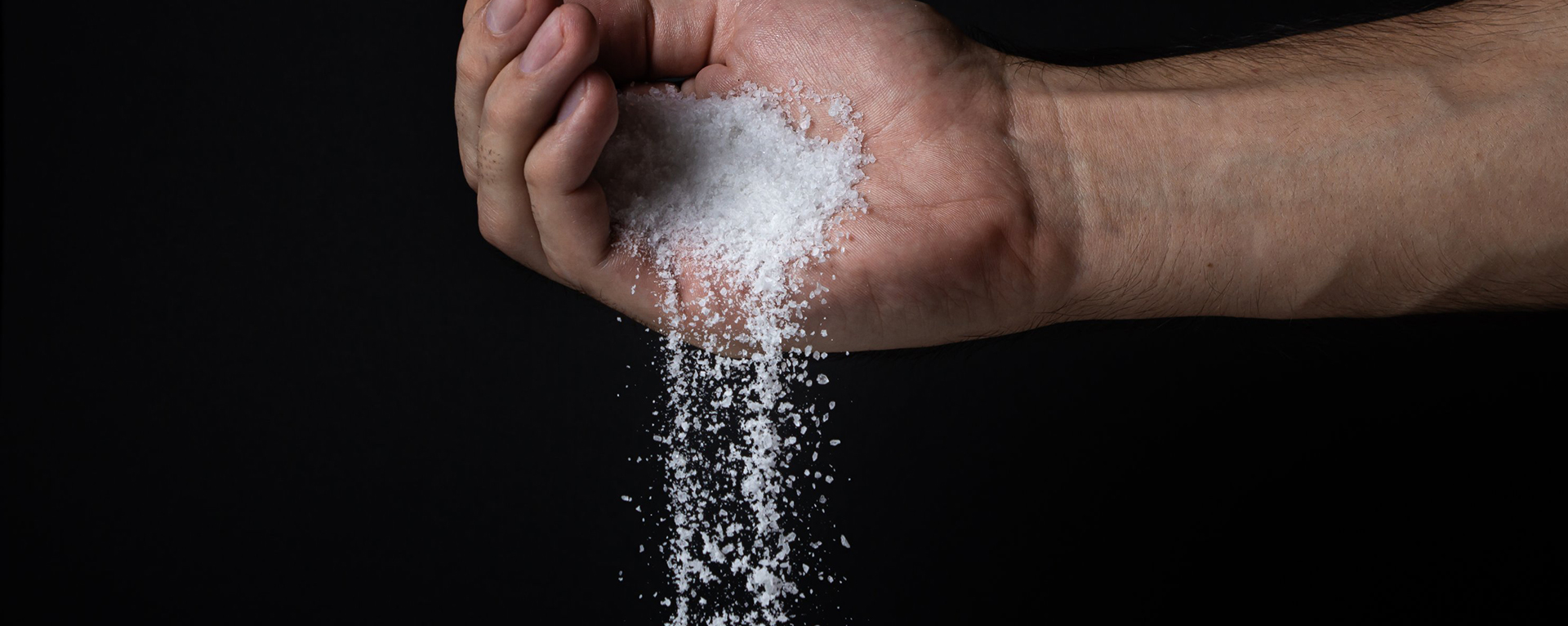Industrial & Common Salt
Iodised salt is common edible salt to which a very small quantity of an iodine compound has been added. Iodised salt is used to prevent a health problem now known as iodine deficiency disorder (IDD). Iodine is a natural element that is essential to human life. Some of the most vital functions of the human body – such as proper development of brain and body and maintenance of body temperature – depend upon a steady supply of iodine. With regard to India, regulations require the iodine content to be not less than a certain amount in food-grade iodised salt. The techniques for iodisation are simple and well established.
Importance of Iodene in Salt
Iodine is a trace mineral that makes thyroid hormones, which are essential for normal growth and development of human body. About 70–80 per cent of iodine is found in the thyroid gland in the neck and the rest is distributed throughout the body, particularly in the muscles and blood. If our body does not have enough iodine, hypothyroidism – low thyroid hormone levels – can develop. Symptoms of hypothyroidism include sluggishness or fatigue, weight gain, dry skin, and sensitivity to temperature changes. In infants and children, hypothyroidism can affect physical and mental development. Some people with hypothyroidism develop an extremely large thyroid, known as goitre. Deficiency of iodine can cause diseases like mental retardation, goitre and cretinism. In fact, without enough iodine a newborn’s brain and body can become permanently retarded and stunted. Iodine is vitally needed during early childhood, puberty, pregnancy and lactation. A woman who is deficient in iodine is likely to produce an abnormal child. If left untreated, the child’s mental and physical condition worsens as s/he grows older
Recommended Amounts
Iodised salt has proven to be the most effective means of providing one with consistent levels of iodine capable of eliminating these diseases. The recommended amount is 150 mcg/day for adults, 200 mcg for pregnant or lactating women, and lower amounts for children. These recommendations stem from consensus statements by several groups, including the International Council for Control of Iodine Deficiency Disorders (ICCIDD), the World Health Organization (WHO), UNICEF, and the Food and Nutrition Board of the US National Academy of Sciences.
Applications
Sea salts has been used:





